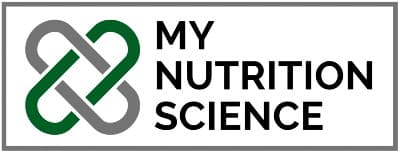Background
Let’s begin with a brief primer on low-carbohydrate and ketogenic diets. As the name suggests, low-carbohydrate diets contain a low(er) percentage of total calories from carbohydrates compared to conventional diets. The definition of a low-carbohydrate diet varies between studies, with some meta-analyses suggesting that <130 grams of carbohydrate per day (or <26% total calories) is the appropriate definition [1], while other reviews suggest <20% of total calories derived from carbohydrates is most commonly used [2]. A ketogenic diet (a.k.a. “keto”) is a stricter type of low-carbohydrate approach, typically capping carbohydrate intake at 50 grams per day, or ~5% of one’s total daily calories. In lieu of these carbohydrate calories, low-carbohydrate and ketogenic dieters consume a high(er) percentage of calories from dietary fat — which may comprise up to ~80% or more of one’s total caloric intake with a ketogenic approach.
Low-carbohydrate diets are most popular for being a successful weight-loss tool [3] but the possible benefits don’t necessarily stop there. Clinical uses of low-carbohydrate diets are becoming more well-established. In particular, ketogenic diets are now used in a broad range of clinical applications, including the treatment of epilepsy and other neurological diseases [4] and metabolic disorders such as diabetes [5]. Among the general population and many scientific researchers, there is also a rising interest in the diets’ perceived benefits for mental health, physical performance, mood, and longevity. However, one of the remaining questions for low-carbohydrate diets is how well they support muscle building for individuals engaged in exercise. This article will discuss the science of low-carbohydrate diets, the basics of muscle building, and whether there is evidence that low-carbohydrate diets can be advantageous for individuals looking to build muscle and improve their body composition.
Low Carbohydrate Diets, Energy and Protein
Many of us try to actively build muscle rather than simply maintain the muscle we currently have — whether this is to prevent age-related muscle loss (sarcopenia), support our physical fitness, or just to look better in beachwear. Muscle growth is governed by the balance between muscle protein breakdown (MPB) and muscle protein synthesis (MPS). We have articles on the site that discuss dietary protein and both MPS and MPB in great detail if you’re interested. In short, MPS occurs when new proteins are produced to repair and rebuild muscle tissue, and it’s stimulated mainly through exercise (i.e. resistance training) and ensuring energy and protein intake is sufficient. On the other hand, MPB is primarily regulated by energy balance and insulin levels, as opposed to dietary protein; however, the insulin response resulting from dietary protein ingestion appears to be enough to reduce MPB maximally without additive benefit for further insulin elevation. The sum of MPS and MPB is ultimately called net protein balance (NPB) [6]. Only with positive NPB are muscle protein accretion and the enlargement of muscle fiber size possible. When NPB is positive, muscles grow. When NPB is negative, muscles break down and muscle mass reduces. While this is a simplified version of a complex physiological process, this generalised formula provides us with enough information to discuss how low-carbohydrate diets influence NPB.

With the above in mind, there is no reason to believe that low-carbohydrate diets reduce muscle building due to a lack of energy and dietary protein. Although low-carbohydrate diets are usually recommended to aid caloric restriction and promote weight loss, this doesn’t have to be the case. With the use of bodyweight tracking and selective food choices to ensure food intake is sufficiently high to best support muscle growth (i.e. an energy surplus), low-carbohydrate diets can meet energy and macronutrient requirements. There is nothing uniquely detrimental to low-carbohydrate diets in this regard, but the possible increase in satiety that some people experience is one factor to be aware of. The same goes for dietary protein. Generally speaking, low-carbohydrate diets are relatively high in protein and tend to exceed general recommendations, even those recommended for maximising muscle growth: 1.6 – 2.2 grams of dietary protein per kg of body weight per day [7]. It can even be argued that, if diets are energy-equated, there is a greater chance a low-carbohydrate diet reaches this protein intake range. Both the animal- and plant-based food sources used during a low-carbohydrate approach are typically some of the highest protein options. For example, fatty meats, nuts, fish, cheese, legumes etc. For this reason, I think that we can safely label dietary protein intake as a non-issue on a low-carbohydrate diet, provided the possible increase in satiety from low-carbohydrate food options does not reduce overall energy intake.
Low Carbohydrate Diets and Anabolic Signalling
It is well-known that some hormones exert anabolic effects on skeletal muscle; among others, the most powerful are testosterone, growth hormone (and its downstream effector: IGF-1) and insulin. Therefore, discussions of low-carbohydrate diets and muscle building requires evaluation of these hormonal factors.
Starting with testosterone, although human experiments are limited, current indications show that low-carbohydrate diets do not affect testosterone differently than higher-carbohydrate diets. Wilson et al. [8] investigated an isocaloric and protein-match ketogenic diet to a standard western diet in 25 college-aged resistance-training males in a randomised controlled trial lasting 11 weeks. After the intervention, the ketogenic diet significantly elevated total testosterone levels by 188 ng/dl compared to baseline, while there was a slight decrease in testosterone observed from the standard western diet [9]. A very similar trial supports this position with a slightly greater sample size (55 adults between 19-35 years old). Here, two isocaloric and protein-matched interventions alongside resistance training, differing only in their carbohydrate content by ~20% total energy, led to no significant differences in testosterone levels during or after intervention [10]. Granted, the intervention in this latter study was slightly above the defined cut-off point for a low-carbohydrate diet; however, the disparity in carbohydrate intake between groups could still have shown a significant difference if there is one to be seen. We should also mention that although exogenous doses of testosterone (i.e steroids) taking ones testosterone levels outside the normal physiological range are potent muscle builders, there is a lack of evidence showing that testosterone differences within the physiological range have great, if any, effect on muscle gain. For example, Mitchell et al. [11] reported that it is the differences in skeletal muscle androgen receptors, not serum testosterone levels, that correlate with muscle fiber cross-sectional area increases following 12 weeks of resistance training in college-aged men. Thus, any small changes in testosterone following low-carbohydrate approaches should not have clinical significance anyway, provided people stay within the physiological testosterone range.
Next, IGF-1. This is an interesting one because, in rodents, low-carbohydrate high-fat diets lead to impairment of the growth hormone/IGF system and cause severely reduced IGF-I concentrations [12]. Yet, in humans, a great deal of evidence suggests some foods prioritised more on a low-carbohydrate approach, such as dairy, increase the circulating IGF-1 concentration [13] [14]. One of the best tests to try and tease out the relationship here was very recently by Pauli et al. [15]. He took 19 healthy adult volunteers and randomly assigned them to a ketogenic diet or a western diet. Various measurements, including IGF-1, were measured before and after two months of intervention, which included a strict resistance training routine. Importantly, mean energy intake was similar (~100kcal lower with ketogenic diet) between diets and bodyweight remained stable during intervention. The results showed that the ketogenic diet reduced IGF-1 concentrations by ~15% from baseline, while the western diet maintained IGF-1 levels. The authors suggested the lowering of IGF-1 was one possible reason why there was an attenuated hypertrophic response observed with the ketogenic diet compared to the western diet in this particular study, although it’s possible that the small difference in energy intake between groups can explain away the effect. In contrast to testosterone, though, IGF-1 concentrations correlate with responses to resistance training within physiological ranges. High training responders express higher levels of skeletal muscle IGF-1 relative to low responders following training, and a cluster analysis best demonstrates this by Bamman et al. [16] after exposing subjects to a 16-week resistance training programme. More evidence is needed regarding IGF-1 to gain a better understanding of it’s relative importance to low-carbohydrate diets.
Lastly, insulin. As insulin signals for muscle growth through something called the insulin-IGF-1-Akt-mTOR pathway, and low-carbohydrate diets lower daily insulin elevations by design, this is, at least on paper, a potential mechanism by which low-carbohydrate diets impair muscle growth. Unfortunately, the relevance of this mechanistic pathway has not been directly addressed in the human setting of a low-carbohydrate diet during resistance exercise training. In studies conducted in rodents, ketogenic diets do not affect total RNA, myofibrillar protein levels, or mRNA expression in skeletal muscle fibers during resistance training [17]. Mice also maintain their anabolic response to resistance training indicating that low-carbohydrate diets may not impair cellular signalling as per the mechanism suggested. This position can be supported by a crossover randomised controlled trial by Figueiredo et al. [18] that took 10 resistance-trained men and tested the effect of a non-caloric placebo versus 3 g/kg bodyweight of a carbohydrate beverage throughout recovery from resistance exercise. Muscle biopsies were collected at rest, immediately after a single bout of intense lower-body resistance exercise, and after 3 hours of recovery. The results showed that carbohydrate ingestion did not enhance anabolic signalling pathways regulated by mTOR pathways. As there was a lack of difference against non-caloric placebo, we can presume that a calorie-equated fat substitute would not perform any worse for mTOR signalling, although again, more tests are needed.
Human Experimental Trials
In a review of the most relevant human experimental trials by Pauli et al [19], the results of randomised controlled trials of ketogenic diets and resistance training for muscle gain appear unpredictable at face value. A mixture of muscle gain, muscle maintenance, and muscle loss has been measured from ketogenic diet interventions alongside resistance training, highlighting the need to consider other factors modulating the changes in effect. Notably, as mentioned earlier, one critical factor is energy intake as it relates to determining energy status of the whole body and muscle tissue itself. Although dietary protein provides the building blocks for muscle tissue accretion, protein translation is one of many energy-requiring steps in protein synthesis. A lack of free energy may inhibit this critical step. Recent literature reviews recommend that sport practitioners ensure an energy surplus within the range of ~300-500kcal per day is implemented for best results [20]. With this in mind, and upon closer inspection of the studies shown in the image below, every single one of them was either in ad libitum conditions (“eat to hunger”) and/or subjects bodyweight didn’t increase from baseline after the intervention. Together this suggests that an energy surplus was not apparent in any of these studies, and so it’s not surprising that only one intervention saw a significant increase in muscle mass. The presumed conditions of energy status meant the ketogenic diet is usually being tested more as a muscle maintenance tool rather than a muscle-building tool. However, the results do reinforce the point that we should always be conscious of meeting a sufficiently high energy intake when muscle gain is the goal.
The study by Wilson et al. [8] at least clarifies that muscle building is possible with a ketogenic approach, in case anyone maintained any degree of doubt. This experiment compared the effects of a ketogenic diet (protein content: 1.73g/kg of body weight) vs a typical “western” diet during a 10-week resistance training program in 25 college-aged males. Muscle mass increased in the ketogenic diet group by ~2.4% while body fat percentage reduced by ~2.2%. Interestingly, the western diet group increased lean body mass by a further ~2.0% compared to the ketogenic diet at week 10. However, this effect may be explained by the slight difference in total energy intake between diets as the ketogenic approach led to greater bodyfat loss.
This leads to another important point: even when low-carbohydrate diets do not increase muscle mass, there are usually still benefits to body composition through effects on bodyfat loss while muscle mass is retained. You can see this effect across the board in a wide variety of different populations, including CrossFit athletes [21] [22], gymnasts, [23], weight lifters [24], healthy adults [25], and overweight men [26] and women [27]. So despite it being true that limited studies exist showing muscle mass increases on a low-carbohydrate diet paired with a structured resistance training program, we can be confident that 1) body composition still improves, and 2) insufficient energy intake is a major limitation in most of these trials. Also noted is that, as is the case with most studies analysing muscle mass changes, the study duration tends to be fairly short– 8-12 weeks– at least with respect to the chronic process of muscle growth that becomes easier to measure with time.
Final Thoughts
Low-carbohydrate diets are perfectly capable of meeting the energy and dietary protein requirements for achieving muscle growth, although conscious choices to ensure a sufficiently high energy intake is advised. From a signalling perspective, there is no clear reason why low-carbohydrate diets uniquely cause muscle loss or impair muscle growth from resistance training regimes, although more research is needed for clarification. If you are looking to pack on some muscle and interested in experimenting with low-carbohydrate or ketogenic approaches, then have at it. The literature recommends keeping your protein intake around 1.6 – 2.2 grams of protein per kilogram of bodyweight for best results, alongside adequate energy consumption to support training and daily demands. Of course, train hard!





